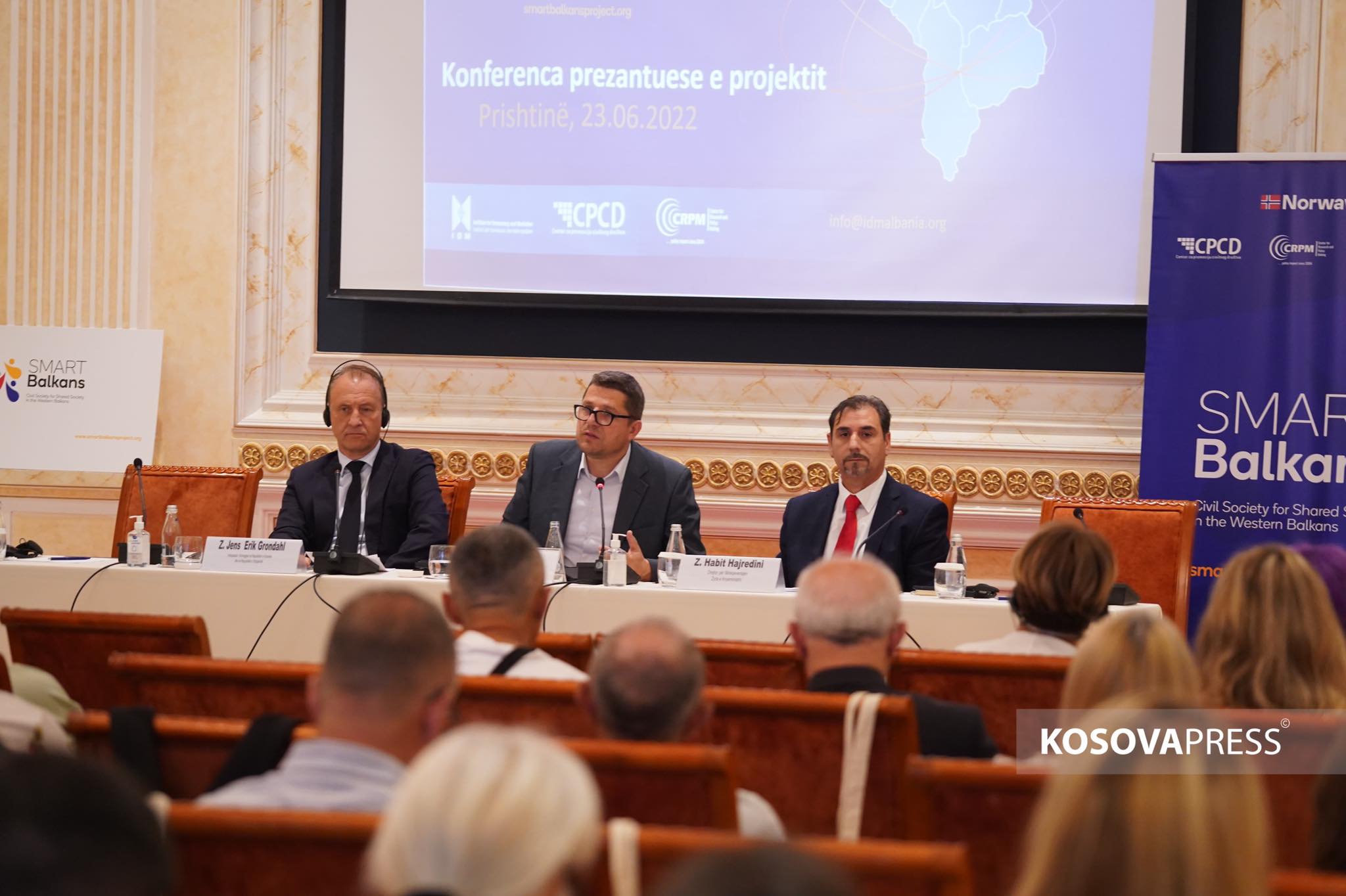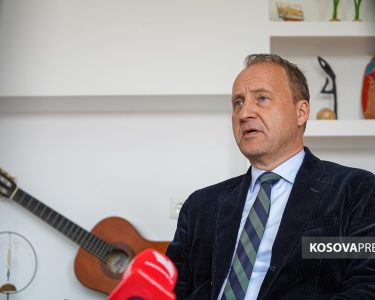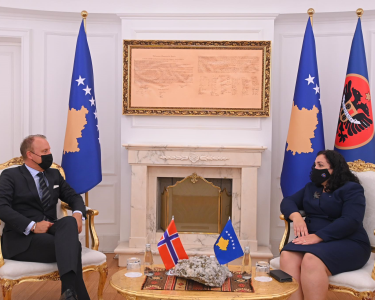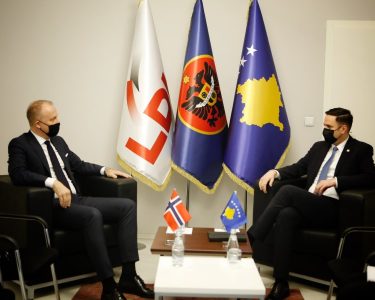About 18 million euros will be available for the project “Smart Balkans – Civil Society for Shared Society in the Western Balkans”. Kosovo is among the six Balkan countries, which is part of this project for strengthening civil society organizations for a stronger and more active role in creating peaceful and inclusive societies for sustainable development.
On Thursday, the Institute for Democracy and Mediation presented in Prishtina this regional project, which is supported by the Ministry of Foreign Affairs of Norway.
Norwegian Ambassador to Kosovo Jens Erik Grondahl said this project is a four-year project worth 18 million euros.
“During the next four years, about 18 million euros will be available for this project. The project will strengthen society, civil society organizations and networks of civil society organizations dealing with new situations, proposals for a new development in the region. And we are doing this in Kosovo, Albania, Bosnia and Herzegovina, Montenegro, North Macedonia and Serbia. We need to reflect on the fact that there is a war going on in Ukraine, and we have a huge rise in the cost of living. Also, we have minorities and so on, which are more vulnerable than us here”, said Grondahl.
According to him, support for Kosovo does not mean that the country is in a bad situation. He said that he is seeing good development in the field of anti-corruption, transparency, rule of law.
“The four strategic outputs we want to achieve with you in the coming years through this project are; First, more sustainable civil society in the Western Balkan region. Second, development of partnership in the region between civil society organizations in the region and EU counterparts and public authorities. Third, the increased effectiveness of citizen influence through CSOs moving towards security, stability and governance in the region and the Western Balkans. Then we have the awareness of the general public to participate in CSOs”, he said in the presentation of this project.
Whereas, the program director of the Institute for Democracy and Mediation, Gjergji Vurmo, said that the project comes at a time when the Western Balkans are facing a series of common challenges towards creating peaceful and inclusive societies.
“Kosovo in this context, not only needs support and capacity in the field of peace, security and good governance, but it also shows commendable experiences to be promoted as good practices throughout our region, and beyond. Civil society in Kosovo is one of the most vibrant in the region, as well as the society and citizens of Kosovo in general, who have known how to give lessons in democracy, not only to the political caste in Kosovo, but also to the entire region”, said Vurmo.
For the director of the Office for Good Governance, Habit Hajredini, this project increases criticism of institutions.
“It is a great priority for the Government of Kosovo and it works continuously to increase and strengthen the dialogue, the communication with the civil society. As a government we have developed adequate policies, such as the government-civil society cooperation strategy, which has a very important key component, to increase public participation and transparency and to make volunteering more accessible and effective. We are very grateful to the Norwegian government for this project. At the moment when we increase the capacities of non-governmental organizations, then advocacy and criticism of institutions increase”, he said.
The Institute for Democracy and Mediation is the organization responsible for implementing the project in Albania and Kosovo.







